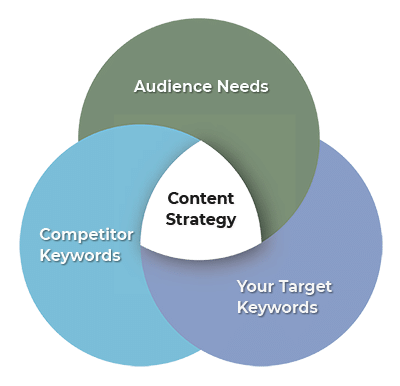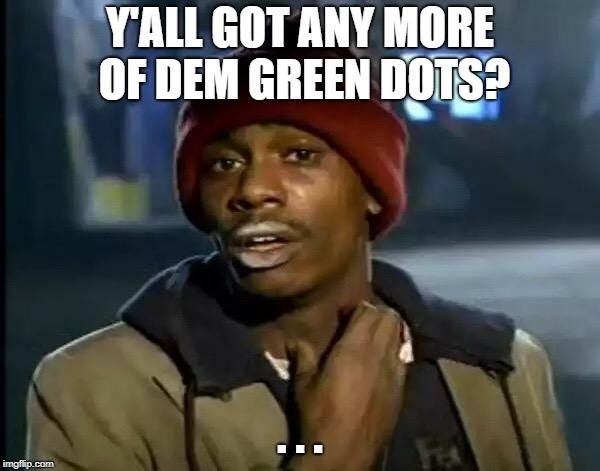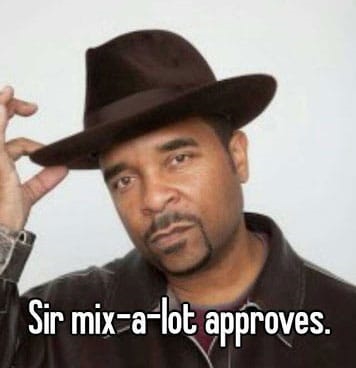Yoast Is Not An SEO Strategy

I have nothing against Yoast, they’re a great company run by very smart people. I use the Yoast plugin all the time. But, and I think the people at Yoast would agree, the plugin alone is not a viable SEO strategy, it’s a tool.
We work with clients and client vendors who come to us with the notion that SEO is simply a plugin or series of plugins. The problem with this is that software is inherently stupid, garbage in, garbage out.
We have a saying here at Wellspring Digital, “don’t trust the tools.” You have to be able to discern how the information they’re giving you fits, or sometimes doesn’t fit, into a larger context.
Now, I could go on and on about goals, but I’ll just leave it at this… smart goals are critical if you want to see the right kind of results from your SEO efforts. You know…
- Specific
- Measurable
- Attainable
- Relevant
- Time-based
Smart.
What Is SEO Strategy?
This post is about SEO strategy and what exactly that means. For years, I was under the impression that SEO strategy was simply an effective content strategy, like many of my marketing colleagues.
I’m a writer, e.g. I think the world revolves around me.

My time at Wellspring Digital has shown me how naive and narrow-minded that is. I’m not saying that my marketing colleagues are narrow-minded, I’m saying their view on what SEO strategy is. Sorry.
So, what is an SEO strategy? Let’s break it down. SEO strategy is the strategy you develop to achieve your SMART digital marketing goals using the following tactics…
- On-page SEO
- Off-page SEO
- Technical SEO
Let’s look at what each of these is and how strategy can increase their effectiveness.
On-Page SEO
On-page SEO refers to anything you do to improve or “optimize” a website to increase its search engine visibility. This could be any or all of the following…
- Content
- Meta titles and descriptions
- Schema or structured data
- Internal linking
- Additional tags
- Speed and performance
- Mobile usability
- UX in general
All of these have an impact on the SEO performance of your website, but some require strategic thinking if you want to achieve your SMART goals.
Speed, performance, mobile usability, and UX, in general, should be a focus for any website for not only SEO but also for conversion and other performance metrics. Plus, this is all good practice for any company that is truly focused on providing a quality customer experience, in all aspects of their business.
Content, meta tags, schema, and internal linking will require more strategic thought for them to have an impact on search engine visibility as it relates to your SMART goals.
Content SEO Strategy
You want to write content for the user, not for the search engines. But SEO should play a role in developing your content calendar and should inform in a strategic way how you write your content.
I’ll explain. Do your keyword research and competitive analysis using a tool like SEMRush or Ahrefs to identify what keywords and phrases you and your top competitors are ranking for. By the way, we use both and others because we “don’t trust the tools.”
Now, match that against what you’ve identified as the needs of your target audience, and you should start to see the early foundation for your editorial or content calendar.

My point with this chart is that you need all three to make an effective content strategy. The problem with Yoast is that it is only as good as the data you give it – remember… garbage in, garbage out.
You need an informed keyword strategy based on analysis, sometimes from several tools, to determine what topics will be worth your time.
Yoast will help once you have all the correct data, but I caution here to focus on writing for the audience and not for that little green dot.

Tags, Schema, and Internal Linking
These should all follow a similar strategic approach as I’ve outlined above for content. Use several tools, some common sense, and some SEO expertise to develop your site architecture and a coding strategy that optimizes the website for search engine visibility.
Yoast offers tools for this, but they are just tools. Remember, “don’t trust the tools.” Use the tools but rely heavily on the tool between your ears. It has much greater processing power.
Meta Tags and Schema
Some meta tags can have an impact on page ranking, such as the page title or H1 tags. Your meta description does not have a direct impact on ranking. However, it is often listed as the site description in your SERP (search engine results page) listing.
These are what I would call “subtle clues” to Google as to what the page content is about. Ahrefs has a great overview of how to properly use meta tags.
Schema, on the other hand, is a powerful tool for optimization. Schema data tells Google (in the code) what the page is, what it’s about, and how Google should use its content. Optimizing schema for your website is critical if you expect your site to rank.
Here is a great overview from Search Engine Journal on schema.
Internal Linking
Internal links, including but not limited to site navigation, are what Google uses to get around your website to find all of that great content. It’s important that your linking strategy factors in your keyword and target audience research.
I used to be a partner at a website design and development firm and managed web design projects for 17+ years. In all that time, the most common process for building the site navigation was to rely on the company leadership to “guess” what site architecture should be.
The company leadership is not their target audience, they are only guessing as to what that audience would be looking for based on sales feedback and/or some other internal dialog.
The better way to develop site navigation would be to interview your customers (buyer personas) and develop a solid keyword strategy. Then, use that data to inform the navigation naming and hierarchy for your website.
Otherwise, you assume you’re using the best terminology, and you know what happens when you assume.
So, I say all of this not to get into the nitty-gritty of code optimization and internal linking, but to stress its importance as it relates to SEO strategy. All of your code, meta tags, and internal links should be set up according to your SEO and content marketing strategies.
If not, you are guessing and relying too much on the tools. You could be missing out on critical keyword opportunities with your on-site optimization and end up ranking for the wrong stuff (that’s a technical term). It happens all the time.
Off-Page SEO
Off-page SEO is, well, all of your SEO efforts outside of your website. This could be link building, PR, social media marketing (not a ranking factor but builds authority), reviews (Yelp, Google, etc), guest blogging (within reason), and other efforts.
Now some of us are known as “link whores.” We want a backlink to our site no matter what. Here’s the problem with that: Google is only as good as the data it receives.
I Like Quality Backlinks and I Cannot Lie

If you have a link on a site that has zero to do with your business, the services you offer, or the products you sell, Google will either get confused and your rankings suffer, or they may even consider it spam and you get dinged.
This is where strategy comes in. Instead of looking for backlinks anywhere you can get them, seek out links that support your overall SEO strategy.
Local SEO
For example, if you’re mostly interested in Local SEO, you might look for local websites with authority and relevance and ask to get linked there. This could be a local chamber of commerce, club, or organization with a strong local footprint.
It could also be a review strategy. Maybe Yelp or Google Reviews play a big role in how a customer might find your business. Assuming you are operating a stellar business offering an amazing customer experience, ask for a review in those places most likely to help you.
Tim Capper, Tab Trash Talker and Local SEO Expert, offers some great tips in our interview with him.
PR and Other Uncomfortable Attention
PR, guests on interviews, podcasts, and video, or other featured content might not be the easiest to earn and certainly isn’t the favorite of many, but its SEO power is undeniable.
This is what Gini Dietrich describes as Earned Media in her PESO model. Check it out, well worth your time. Here are some samples of earned media that can really move the needle in terms of SEO…
- A press release about some news update or achievement at your company. Getting this kind of coverage can be a big boost for your SEO, assuming it comes with a backlink.
- Interviews in the form of written interviews in a blog format, podcast interviews, or video interviews. If you have a subject matter expert who doesn’t mind the attention, work on getting them interviews with industry-related websites.
- Guest posts on sites with authority. I mentioned Gini Dietrich earlier, she runs a website called Spin Sucks with tons of domain authority in the digital marketing world. Well, I’ve written a couple of guest posts for her and those links still prove to be very valuable.
There are certainly other examples of earned media but that’s not my point here. My point is that earned media is a powerful tool to improve your own domain authority and search rankings.
Links Need a Strategy Behind Them
But don’t turn into a link whore. Always bring it back to strategy. For example, you might not want to write a guest post for a powerful industry website because you think your clients don’t read it. That could be a mistake.
Google E-A-T is what I’m alluding to here. Expertise, authoritativeness, and trustworthiness are what those stand for. While your client may not read your guest post on that industry website, Google will view that as a signal that you are an authoritative expert on a specific topic and can be trusted.
While E-A-T has not yet been determined to be a direct ranking factor, it still matters a great deal, So, what’s my point? If you approach your earned media with an SEO strategy in mind, you will focus on getting links that move the needle.
Notice I have not mentioned Yoast at all during the Off-Page SEO section of this post? That’s because Yoast is not a viable off-page SEO tool.
Technical SEO
Technically (see what I did there?), technical SEO could be lumped in with on-page SEO. It includes things like schema and meta tags. But it also includes things like robot.txt files, 301 redirects, and disavow files.
It also includes server issues like speed and security. It breaks down like this…
- Make sure your website host is business-class, fast, and doesn’t put you on a box with a bunch of shady websites.
- Make sure you’re using a robots.txt file to tell Google how the website should function. Here’s a great post on robots.txt files from Yoast. Oh, the irony!
- Setup a canonical linking structure such that Google knows which link is the original. Here’s a great overview on Canonicalization from Moz.
- Monitor your link profile and disavow any “toxic” links. We have a client who was just hit by a negative SEO attack and are working with them to clean that up with a disavow file. Here is a great article from Ahrefs on when to use a disavow file.
- 301 redirects are important when you’re redesigning your website or making changes to the linking or permalink structure. These can be included in your robots.txt file or you could use a plugin. Just be careful because sometimes 301 redirect plugins can create a wicked link redirect loop. Consult a professional. Plus, you might not want to redirect an old page when updating, so consult your SEO professional when setting these up. Here’s a great post from Ahrefs on 301 redirects.
In terms of strategy, technical SEO should support your smart goals. How can these tools be utilized to help you achieve those goals, and almost more importantly, how can they be utilized to help your target audience find and interact with you?
SEO Strategy Makes the Difference
So, when it comes to SEO strategy, Yoast is a tool and not the answer to all your SEO needs. Remember, SEO strategy is your roadmap to SMART digital marketing goal realization using the following tactics…
- On-page SEO
- Off-page SEO
- Technical SEO
On their own, these tactics can have a dramatic impact on your search rankings, but are they the right rankings? Strategy + tactics using the right tools, including the one between your ears, is how you deliver an SEO report that everyone will celebrate!
Digital & Social Articles on Business 2 Community
(104)

